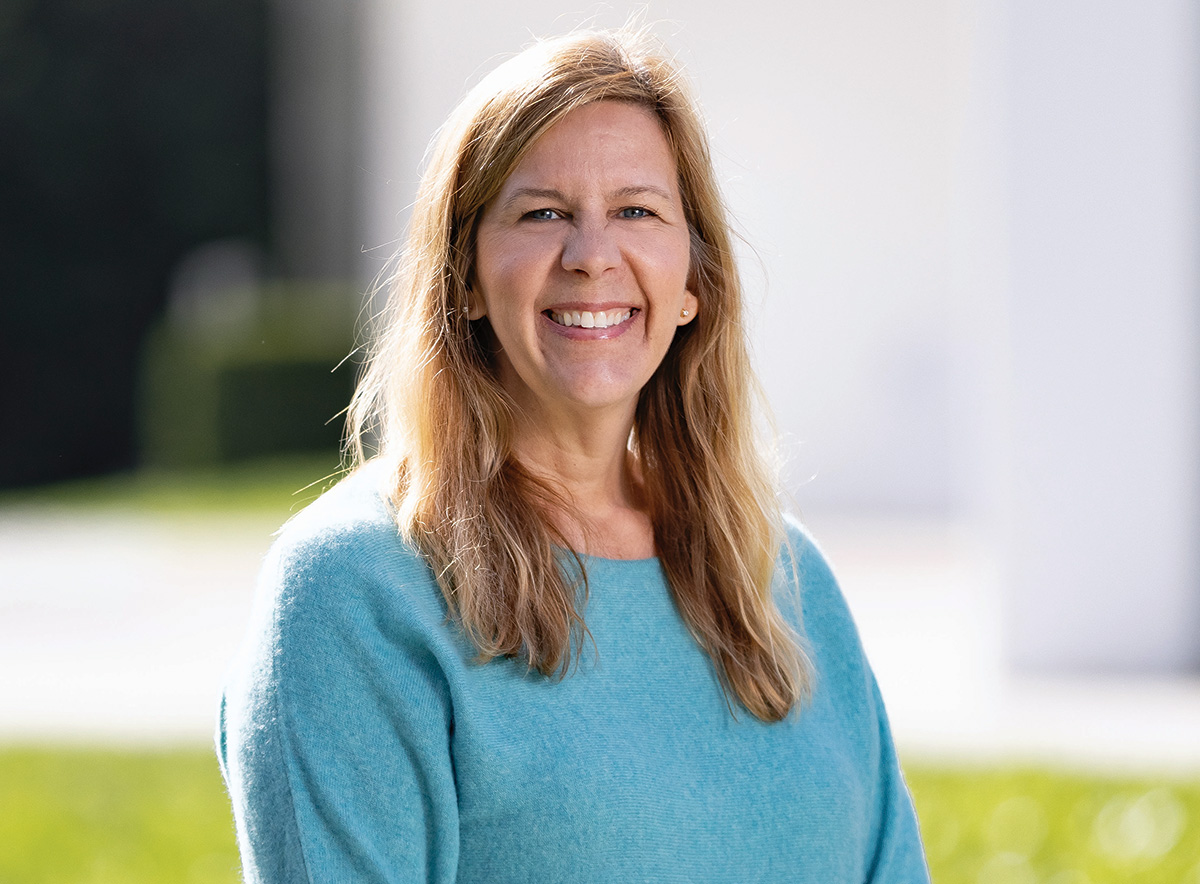Building a sensory wall at a local elementary school, fixing fences that will protect endangered gopher tortoises, coaching baseball to children with special needs—thousands of students who have gone through Lynn University have participated in countless community service projects, thanks to the Citizenship Project.
Anna Krift, a professor of international relations, was a part of the founding committee and now serves as the program’s director. For four weeks, each Lynn University freshman creates and executes a service project, filling a need in the community. Special guest speakers, such as poet laureate Richard Blanco, have spoken to the students as they learn to be a citizen of the world.
“The students, they help design what’s important to them, what are issues that they’re seeing here in the local community, and some of the local issues are also global issues,” Krift says.
This month, Krift is celebrating 20 years at Lynn University, a school she was drawn to because of its small size, mentoring program, student-teacher collaborations, and the international population of its students. At the front of the university, the school has a flag representing each country that students are from; there are more than 170.
“The perspectives that you get in the classroom, it’s incredible,” Krift says. “Right now I have a student from Mozambique, and she was providing insight into the political situation there. I don’t know many universities where you can have that type of experience.”
The daughter of a Navy pilot, Krift lived in Puerto Rico for five years as a child and learned to speak Spanish. She studied abroad in Costa Rica as a student at Eckerd College, then returned to the country for one-and-a-half years as a Fulbright Program fellow. She discovered that the women living in La Fortuna and La Tigra were part of a group of 349 women who were the first of their sex to cast their vote in Costa Rica in July 1950. The previous year, the government had granted suffrage to women for the next national election, but the women in northern Costa Rica had a local election, allowing them to vote before the rest of the country. Many of the records of this momentous time were destroyed in the ‘70s, and as the women were getting older, Krift interviewed them, and their anecdotes are stored at the University of Costa Rica.
In 2009, students and faculty were surveyed about how Lynn University could enhance their experience; many said they wanted more opportunities for service. This led to the creation of the Citizenship Project, a four-week intensive program that each freshman takes in their spring semester of school.
Students take inspiration from the 17 United Nations’ Sustainable Development Goals and pinpoint a need in the community by partnering with one of 30 community organizations. Projects have included cleaning thousands of pounds of trash from mangroves with Gumbo Limbo Nature Center; packing comfort backpacks for foster children at Place of Hope; maintaining the Pearl City community garden with Ebenezer Baptist Church; creating safety and awareness kits for people with autism spectrum disorder through the Els Center for Excellence; and coaching baseball games with the Miracle League for children with special needs.
This January, 800 students took part in the program; almost 10,000 students have gone through the Citizenship Project since its inception.
DIVERSITY OF PROJECTS: We are an international university, and what a student may have witnessed in their own home country, whether that’s Argentina or Mozambique, they also are seeing it right here in South Florida. So I think it’s important that they’re helping to design those projects and having that impact.
SETTING THE STAGE: This isn’t just this one project and class that they take here at the university. They carry this on throughout each year, and they have additional opportunities to serve as well through internships. Students have gone on to intern with these organizations and even jobs. Hopefully they have this passion for wanting to give back, to serve their community wherever they end up.
THE IMPACT: Regardless of major, I think active citizenship and civic engagement is so important. Serving one’s community—and also from a planning perspective, and executing your idea to a finished project—is something they can take regardless of careers.
This article is from the April 2025 issue of Boca magazine. For more like this, click here to subscribe to the magazine.







